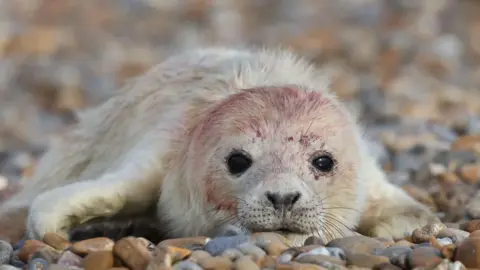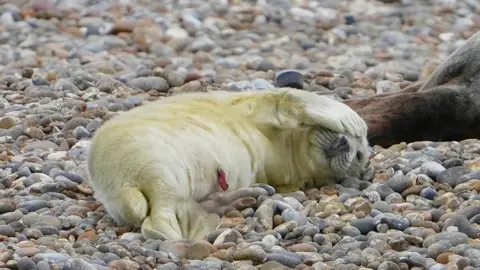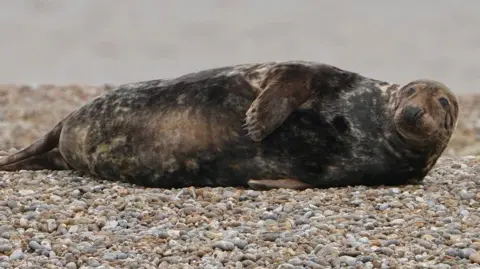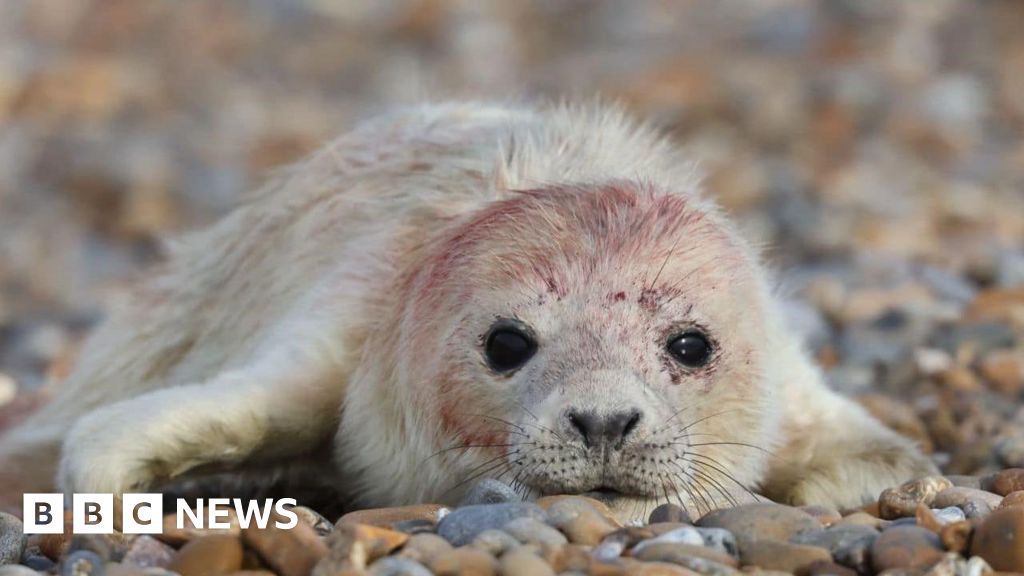 National Trust
National TrustA large colony of seals is thriving on an English coastline thanks to a “lack of human disturbance”, according to the site’s manager
Orford Ness in Suffolk is the home to the county’s first breeding colony of grey seals.
The site, managed by the National Trust, welcomes more and more seals during each winter breeding season.
Matt Wilson, the trust’s countryside manager for the Suffolk and Essex coast, said he hoped the site would rival other UK seal colonies.
 Stuart Howells/BBC
Stuart Howells/BBCThis winter’s breeding season, which began in November, has seen 80 pups already born with many more expected.
Since 2021, when the seals first arrived, their numbers have been steadily increasing.
The site is now home to about 400 seals, up from about 200 three years ago.
“We’re really lucky,” said Mr Wilson.
“It’s part of their natural movement of colonies anyway, so they’ve moved down, we think, from Lincolnshire and Norfolk colonies.
“They’ve formed a breakaway group, found this site and moved into the space we’ve got here.
“It’s a real privilege to have them on this site and a responsibility, too, for the team here.”
 Stuart Howells/BBC
Stuart Howells/BBCOrford Ness is a 10-mile long (16km) vegetated shingle spit, joined to the mainland just south of Aldeburgh.
During the 20th Century it was a military testing site.
The public are able to visit during the summer but not allowed to get close to the colony.
Mr Wilson said he believed this was a “major factor” in the colony’s success.
“Even during our open season for visitors, the public aren’t allowed on to this section because the seals are still here through the summer,” he said.
“It’s a great factor for them, this lack of human disturbance, for what is a really amazing occurrence on this site.”
Mr Wilson said the spit’s ridges and dips also added a “natural shelter barrier” against bad winter weather.
 Jo Black/BBC
Jo Black/BBCHe said the success of the colony was a good indicator of the health of both the species and the marine environment, because the seals would not be there unless there was a good food source for them in the North Sea.
“We’re certainly hoping it will become one of the hotspots for grey seals around the UK coast,” he said.
“It is such an enormous potential; it is a great environment for them.”
Source link
 Insights Daily World is your one-stop destination for discovering unbeatable discounts, trending deals, and the latest offers across various products. Stay informed with the newest updates, breaking news, and insightful deals, all designed to help you save and stay ahead
Insights Daily World is your one-stop destination for discovering unbeatable discounts, trending deals, and the latest offers across various products. Stay informed with the newest updates, breaking news, and insightful deals, all designed to help you save and stay ahead





